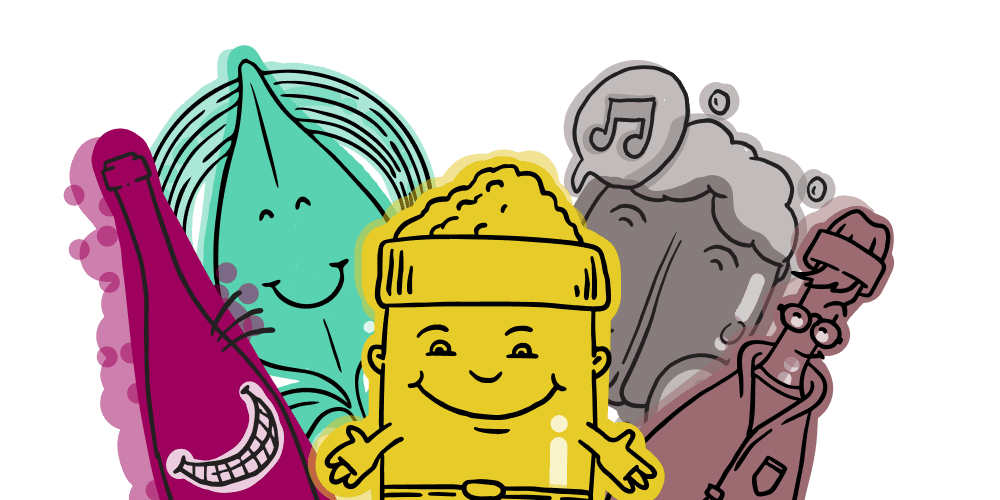The true meaning of cheap coffee
Around the world, and especially in Italy, many cafes and bars will sell a cup of espresso for one single euro, sometimes even less. Although some would love this budget-friendly price, most don't even realize the severe effects it has on the coffee supply chain.

Around the world, and especially in Italy, many cafes and bars will sell a cup of espresso for one single euro, sometimes even less. Although some would love this budget-friendly price, most don’t even realize the severe effects it has on the coffee supply chain.
A semi-foreigner like me in Italy, meaning I’m from Israel but been living in Italy for 4 years, knows well the hype around Italian coffee throughout the world. I have strong opinions about the Italian coffee culture, some of them were even expressed here in Vinhood. They might be contradicted to what some non-Italians think, and definitely many Israelis. The main one, of course, is “ohh how good the Italian espresso is!” that you often hear outside (and inside) the peninsula. The second most common statement is usually “espresso in Italy is so cheap! You pay one euro for an amazing espresso!“. The first comment is obviously a matter of opinion (is it? I’ll tell you more another time), experience, culture and so many other factors. It doesn’t matter now.
What matters to me is the second comment: “CHEAP COFFEE”.
AN AGRICULTURAL PRODUCE
Coffee, as many other gastronomic products, is an agricultural produce. Like most of them, the quality of the raw material is crucial. Non-similarly to some others, coffee is a ‘processed’ product. Not really in the sense of artificial, chemical or fake, but more about the enormous journey it’s going through: in the fields, in factories, in roasteries, in coffee shops. Coffee is passing by so many pairs of hands, machinery, equipment, shipping mediums and quality tests. Each and every sector within the coffee industry, what we call “the coffee supply chain”, has thousands of people working in it around the world. Obviously, these people must get paid, right? So how does an 80-cent cup of espresso pay so many people along the chain? Well, that’s a hell of a question! IT DOES NOT.
If we think of every single sector in the industry, the higher the quality, the higher the salary.
To make it simple and quick, let me show you the average journey for most coffees: farming and agricultural practices -> harvest -> selection -> processing (fermentation) -> drying -> another selection -> transportation to exporters -> export and shipment -> green coffee analysis and control -> roasting -> packaging -> brewing. Think of the crazy amount of people involved, machines used, money spent. It’s a lot. In each and every step I’ve just mentioned (I even skipped a few!). Do you REALLY think a cup of coffee for less than a euro could encapsulate all those costs, all this quality? By now, I hope you know the answer.

photo by: Saar Avrashi
EFFICIENCY OVER QUALITY
Cheap coffee could mean the use of chemicals in the farm to sacrifice quality for quantity and efficiency; cheap coffee could mean exploitation of coffee pickers, certainly the weakest and most fragile personnel in the value chain; cheap coffee could mean no selection of the cherries, therefore uneven ripeness and low quality of raw material; cheap coffee could mean fast and efficient processing, without fermenting, meaning no complexity and character in the cup; cheap coffee could mean exporting the beans through a company which keeps exporting rates low because it pays a lower than average salary to its workers or producers; cheap coffee could mean a roastery that roasts without any passion, attention or style – just plain, boring, generic coffee; cheap coffee could mean that an amateur non-specialized barista will make your daily cup without a clue of what they’re actually doing.
I know that cheap coffees are somehow appealing and convenient. I also know that purchasing a bag of coffee beans for 20 euros, or a cup of filter coffee for 8 euros, is a treat which belongs to the privileged or the coffee-maniacs. But we don’t have to be so radical, choosing the most expensive or the cheapest.
(‘Why Does Espresso Still Cost 1 Euro In Italy? By Perfect Daily Grind’)
CONSUMERS WITH RESPONSIBILITY
After all, by now many of us have learned to be aware of our surroundings. We know that purely by being consumers, we make important decisions. The choices you make as a consumer, in a way reflect who you are as a person and in which values do you believe in. These choices have huge impacts – socially, economically and environmentally. If we all just stop and think for a second, and realize the consequences a horribly cheap cup of coffee has on so many people and sectors – things will change in the industry. A cheap cup of coffee will never be the sustainable and responsible decision to take.

photo by: Saar Avrashi
Ready to join the Vinhood family?
Vinhood is the First Italian Taste Agency. We explore the world of taste to guide people about how to choose and consume products and supporting companies in nurturing personalized relationships with their customers.
Read more
- The ABCs of perfect moka
 Morning rituals revolve around various beverages, but we can safely say that for approximately 90% of Italian families, the moka pot steals the show. Let’s learn everything about it!
Morning rituals revolve around various beverages, but we can safely say that for approximately 90% of Italian families, the moka pot steals the show. Let’s learn everything about it! - Coffee trends: from cold brew to snapchilled coffee
 A deep dive into the world of cold brew and snapchilled surprises - what coffee lovers need to know. Navigating the exciting terrain of coffee trends, including nitro enchantment and the ready-to-drink renaissance.
A deep dive into the world of cold brew and snapchilled surprises - what coffee lovers need to know. Navigating the exciting terrain of coffee trends, including nitro enchantment and the ready-to-drink renaissance. - The #Characteristics of the origins: a journey to coffee producing countries
 From South America to Africa: let's explore some coffee-producing countries perfect for every #Character. Terroir, varieties, and processes that make each origin unique and special, so that every cup becomes an unforgettable taste experience.
From South America to Africa: let's explore some coffee-producing countries perfect for every #Character. Terroir, varieties, and processes that make each origin unique and special, so that every cup becomes an unforgettable taste experience.

